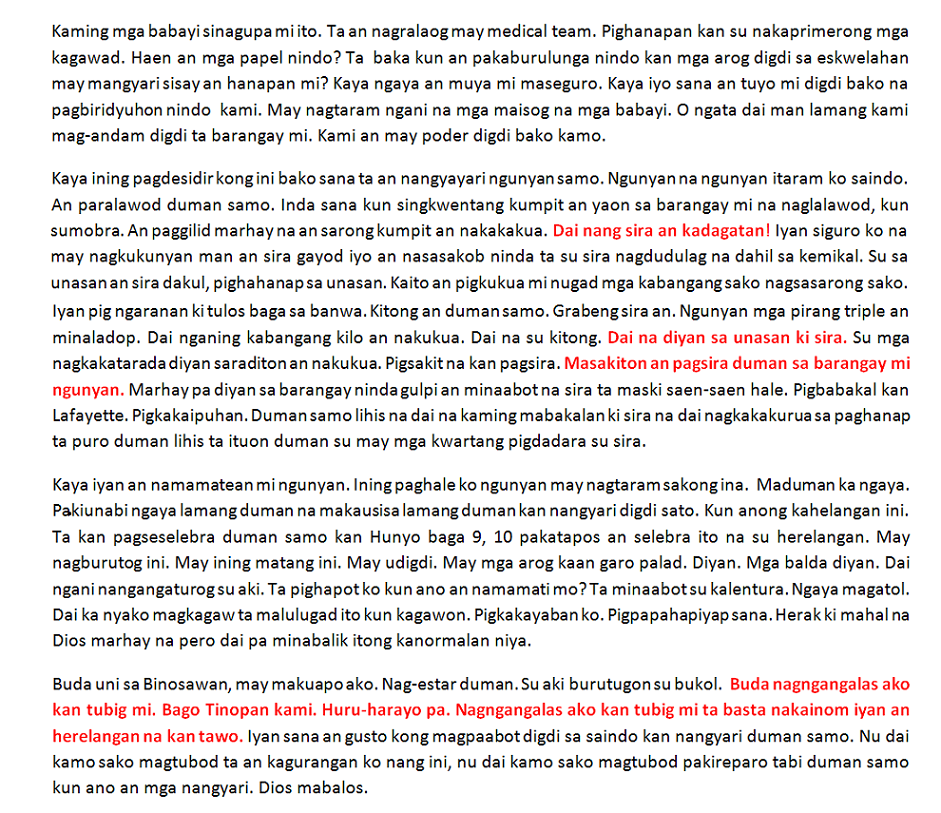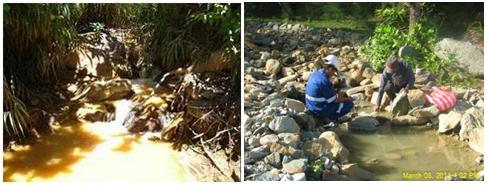The good news: 1. Metal prices are steadily rising. 2. The Philippines, the 5th most mineralized country in the world, has vast untapped mineral resources with a value of about "$850 billion or about 10 times our (current) GDP."
The bad news: 1. The local mining industry, despite favorable rulings from the Supreme Court and in spite of very positive projections in the media, has not really taken off as expected. 2. "Negative publicity from environmental groups and the church, problems with communist insurgency and ever-shifting tribal loyalties in the area of the find have continually posed as serious roadblocks." 3. "The constitutional impediment that gives authority to local governments to protect their environment and communities further hinders the development of the mining industry."
What is wrong with this presentation? Answer: It does not tell the whole story.1. Present mining laws, policies and Supreme Court rulings have effectively guaranteed mining firms to get the biggest chunk of that much-touted $850 billion pie of our country's mineral deposit net worth, leaving only scraps for the rest of us to be happy with. Under present conditions, we stand to lose more than to gain in terms of our national patrimony and the environment.
2. Church's and green groups' opposition has been regularly lumped together with insurgency and rebel raids, as among the factors that prevent the mining industry from prospering. Being bad for business and being unreasonable are two different things. Now the validity of the Church's and green groups' reservations have never really been seriously questioned, much less debunked. Mining firms, the government, and their corporate sympathizers, this article's author included, simply choose to ignore them.
3. "The constitutional impediment that gives authority to local governments to protect their environment and communities further hinders the development of the mining industry." Shouldn't we consider the principle that local governments know what is best for their local community and are generally (not in all cases though) more concerned about the welfare of their local constituents than national officials and mining firm executives? And this is considered bad news.
"While world metal prices remain favorable, it is important that the government (both on the national and local level) should not lose its focus." We agree. But which focus? Mining firms and their sympathizers wish that we restrict our view to mining and their heady promises of economic boom. Shouldn't the focus be on the people, on sustainable development of communities, on preventing unnecessary damage to the environment?
As it is, rhetoric to the contrary notwithstanding, sustainable development and mining practices in the country today are two very different, almost opposite, realities. Maybe, listening and following the Church's and green groups' call may just be the thing to bridge that gap.
Good news, bad news
Philippine Star
PHILEQUITY CORNER By Valentino Sy
Monday, February 25, 2008
In October 2007, we wrote two articles, one entitled “Oil on the way to $100” and second entitled “Gold on the way to $1,000.“ At that time gold had just traded above $800 per oz. and oil had just breached $90 per barrel. What was deemed far-fetched then has now become a reality.
New York Light Sweet Crude spiked to a record high of $101.32 per barrel last Wednesday on fears about supply disruptions around the globe and amid strong demand.
Meanwhile, gold is less than five percent away from the $1000/oz. mark, enjoying a record high of $953.91 per ounce on Thursday. The yellow metal has once again found appeal among investors fleeing from dollar assets in lieu of further rate cuts by the US Fed. The strong demand for gold also comes amid firming oil price as the yellow metal is highly regarded as a natural hedge against inflation.
Base metals prices rallied across the board as tightening global supplies dictated market direction. Copper, which closed at $3.80 per pound, is now poised to break its all-time high due to strong
Towards energy independence
There is no question that rising oil prices is bad news for an oil-importing country like ours, especially since we are aiming to sustain the high levels of growth we have recently achieved.
The good news, however, is that the
Today, the
At the same time, the government continues to promote the use of alternative fuels and technology, particularly in the transport sector. These cleaner alternatives include biofuels (coco-biodiesel, coco-methyl, fuel-ethanol and jatropha curcas), compressed natural gas and autogas. The Department of Energy (DOE) aims to attain a sustainable 60 percent self-sufficiency level by 2010 and beyond.
Impediments to the revitalization of mining
Rising metals prices, on the other hand, is definitely good news to the
The bad news, however, is still the largely untapped state of our mining industry despite the Supreme Court decision in 2004 to uphold the 1995 Mining Act.
Negative publicity from environmental groups and the church, problems with communist insurgency and ever-shifting tribal loyalties in the area of the find have continually posed as serious roadblocks. The constitutional impediment that gives authority to local governments to protect their environment and communities further hinders the development of the mining industry. In fact, certain provincial boards have made proposals to ban large-scale open pit mining such as that of the Tampakan area. All these issues have underscored the high risks to mining development in the
While world metal prices remain favorable, it is important that the government (both on the national and local level) should not lose its focus. Together with the local communities, they must vigorously pursue the sustainable development of our mining industry, with equal consideration for both social and environmental responsibilities.
































































































































No comments:
Post a Comment